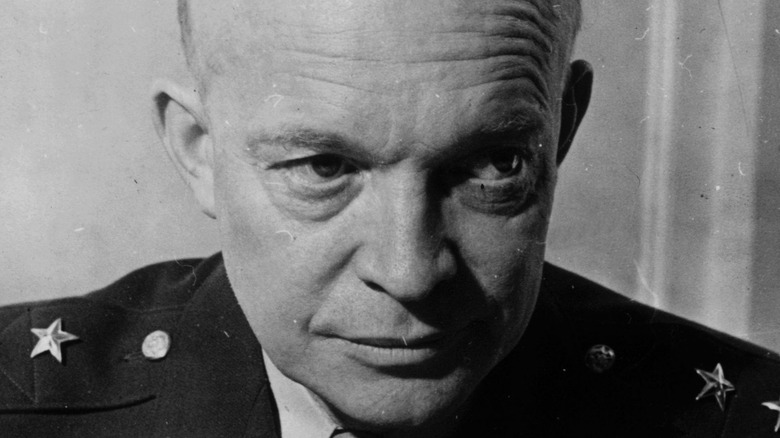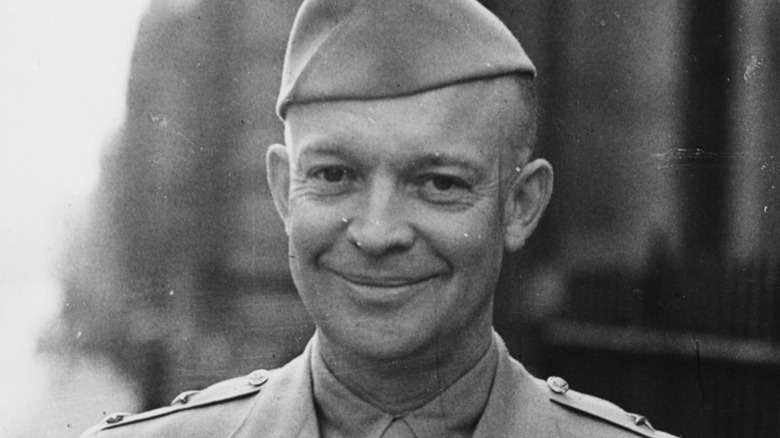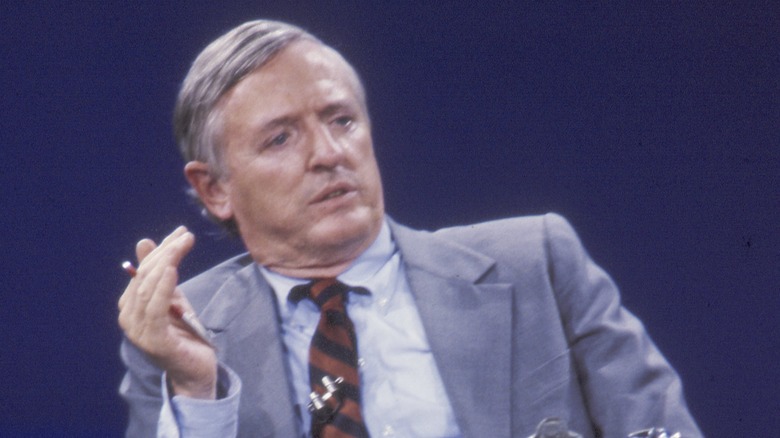President Eisenhower's Battle With Conservative Conspiracy Group The John Birch Society
Conspiracy theories and the fight against their spread is common in the general public's consciousness these days. Though the term has long existed, such theories seem to have broken into more mainstream thought and media, from television news to social media networks. Some are harmless to society as a whole, such as those that often surround the deaths of major stars like Marilyn Monroe and Elvis Presley. Some are even comical, like those regarding the Denver Airport (via Travel + Leisure).
However, it is less comical when a conspiracy theory takes root so firmly that its believers are willing to put themselves and others in harm's way. Such harm could come in the form of defamation or hateful speech. Conspiracy theories also become more concerning when powerful public figures are involved. They can cause people to question a person whom they once trusted with leadership. In the 1950s, President Dwight D. Eisenhower dealt with a prominent conspiracy group with views that sound all too familiar in the 21st century United States.
Robert Welch claimed that Eisenhower was a communist
According to WBUR, Robert Welch founded the far-right populist John Birch Society in the 1950s. Welch believed that President Dwight Eisenhower was secretly a communist in cahoots with the Soviet Union. He believed that the African Americans in the southern United States attempting to gain civil rights were pawns of communists as well. Supporters of the John Birch Society were Republican. President Eisenhower was, too, but he did not undo President Franklin Roosevelt's New Deal or free Eastern Europe from the Soviet Union as some Republicans had hoped.
Welch published his accusations against President Eisenhower in a 200-page letter sent and shared among far-right conservatives. The letter stated that Eisenhower was "an actual Communist agent" (per The New Republic). Strangely, Eisenhower never made a public statement about the claim. The Eisenhower Library states that he only shared his views on the society among correspondents, but many wrote letters to him inquiring about it.
Popular conservative William Buckley denounced Robert Welch
The John Birch Society forged on into the 1960s and 1970s with Welch connecting major world events back to more secret Communist plots. Supporters of President Ronald Reagan shared similar values to the society, but just as Reagan was getting elected, the society began suffering under debt and lost the financial ability to have large-scale influence (per The New Republic).
Despite the lack of visible influence, the society's values persist in the 21st century as they did under the Reagan administration. In "A Conspiratorial Life: Robert Welch, the John Birch Society, and the Revolution of American Conservatism" (excerpt on WBUR), Edward H. Miller writes that though prominent conservative William F. Buckley (above) ousted Robert Welch from the Republican party, contemporary theories pushed by QAnon — like the ones suggesting that Democrats in office are child-sex predators and that the 2020 election was stolen — harken back to the John Birch Society. This is because some people in the present age are becoming more accepting of "extreme theories."


